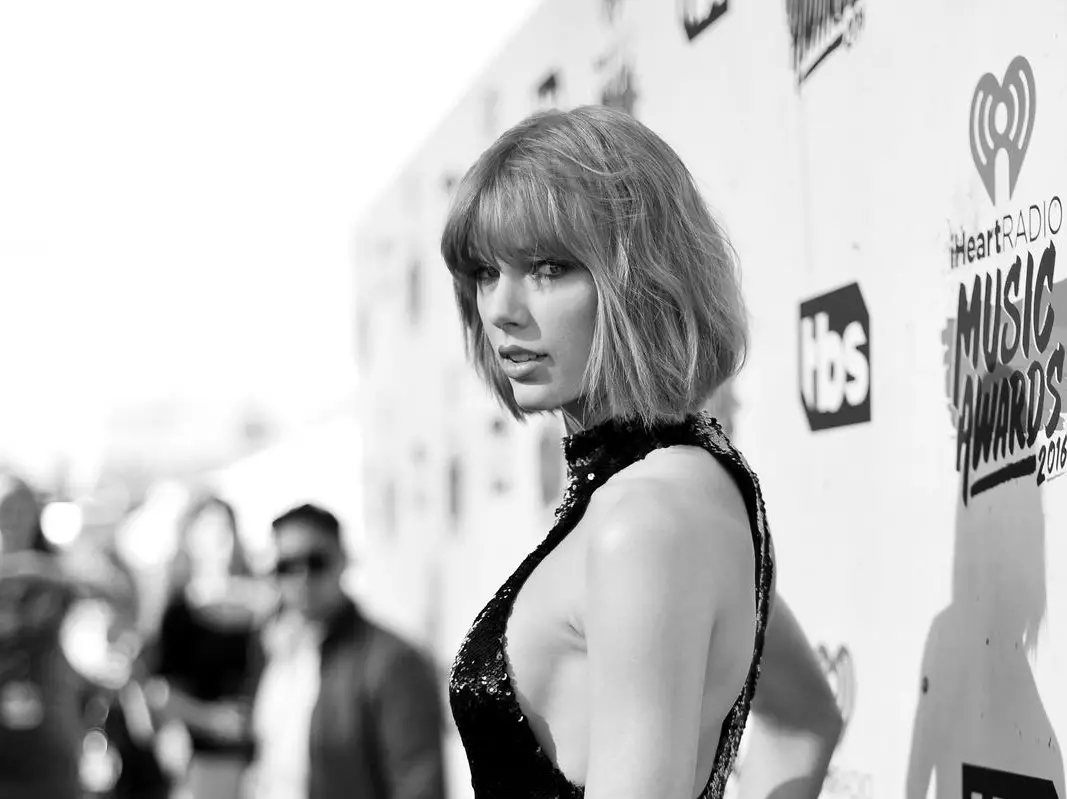The social sphere is erupting with talk of pop singer Taylor Swift’s first political post on Instagram — aimed at not only voicing her personal opinions about this upcoming election, but to also encourage fellow citizens to go out and register to vote. Although she has not been outspoken about her political opinions in the past, Swift wrote that she decided to do so now because of “several events in my life and in the world in the past two years.”
One of the main purposes behind her Instagram post was to advocate for her own personal political beliefs. Swift wrote: “I always have and always will cast my vote based on which candidate will protect and fight for the human rights I believe we all deserve in this country.” She expresses that she is especially concerned with the issues of systemic racism, the fight for LGBTQ rights and women’s rights, especially in the workplace. This is what drove her decision to denounce Marsha Blackburn’s election into the Senate in her home state of Tennessee.
Swift bluntly states she “cannot support Marsha Blackburn” because the candidate “voted against equal pay for women. She voted against the Reauthorization of the Violence Against Women Act, which attempts to protect women from domestic violence, stalking, and date rape.She believes businesses have a right to refuse service to gay couples.” This is where I find a particular sense of respect for Swift; the pop star doesn’t just advocate who she’s voting for or what political party she associates herself with; she extensively defends her beliefs. Once she states the values she believes need attention, Swift explains why this specific candidate stands to degrade any progress that has been made and inhibit any in the future.
To narrow in on just one of these issues, the act Swift references when saying Blackburn “voted against equal pay for women” is the 2009 Lily Ledbetter Fair Pay Act. The Huffington Post article, “Marsha Blackburn: Women ‘Don’t Want’ Equal Pay Laws,” explains that “the law makes it easier for women to file wage discrimination suits against employers” and that Blackburn also voted against the Paycheck Fairness Act of 2009. It’s not as though Blackburn claims to be anti-feminist, but when questioned about her views concerning women’s rights in the workplace, she claims, “They don’t want the decisions made in Washington. They want to be able to have the power and the control and the ability to make those decisions for themselves” — weird flex, but okay?
One of the most contradictory facets of Blackburn’s claim is the fact that it is nearly impossible for women to possess the “power” and “control” to fight for their right to equal pay without the support of their government. Is she expecting women to scoff at federal laws defending gender equality, and instead march into their bosses’ offices, demanding a pay raise that will match that of their male coworkers — problem solved? Is she that naïve? If that were a legitimate solution, the issue would not still be so prevalent in our society.
Take a look, for instance, at the statistics the very same Huffington Post article mentioned about women’s pay in the U.S.“ The gender pay gap has expanded in recent years. In 2012, women earned approximately 80.9% of what men earned. According to a recent analysis, the average U.S. woman now stands to lose out on $443,000 over 40 years.” While many sources claim that the wage gap has narrowed in the six years since this study was published, that doesn’t mean it still isn’t a crucial issue that remains unsolved and is pushed to the backs of our minds.
If men are still making a whopping 19.1 percent more than women to do the same exact job with the same level of education, there is obviously still a problem, and the federal government needs to step in to solve it. Swift explains that, because Blackburn’s voting record and policies do not defend these ideals, she is voting for the Democratic candidate running against her, Phil Bredesen.
https://www.instagram.com/p/BopoXpYnCes/?utm_source=ig_web_copy_link
However, Swift makes sure to avoid encouraging her followers, fans or anyone reading her message to necessarily do the same. Instead, what she asks is to “Please, please educate yourself on the candidates running in your state and vote based on who most closely represents your values. For a lot of us, we may never find a candidate or party with whom we agree 100% on every issue, but we have to vote anyway.” Swift is shining light on a critical fact that many Americans aren’t distinctively aware of: there will not always be a black and white solution. Just because you are a Democrat or Republican does not mean you will agree with every candidate that identifies as such. We should be open-minded and think critically about each candidate and their thoughts on the issues at hand.
Swift closes her post with a call-to-action message for all U.S. citizens to go out and vote this upcoming election: “So many intelligent, thoughtful, self-possessed people have turned 18 in the past two years and now have the right and privilege to make their vote count.” She also promotes the website Vote.org as a mode to do so.
Whether this was her intention or not, Swift’s message reached many of her 112 million followers, and went on from there to greatly influence the number of registered voters in her home state of Tennessee. CNN recently reported, “190,178 new voters were registered via Vote.org nationwide during September and 56,669 in August. Swift suggested people visit the website” and within 24 hours of Swift’s Instagram post, registrations were up to 64,000. It is also cited that Kamari Guthrie, director of Vote.org, stated that “traffic to her organization increased after Swift’s post, with 155,940 unique visitors coming to Vote.org in the 24 hours following, compared to the average number of daily users of 14,078.”
Whether this outcome is a result of passionate Taylor Swift fans, or new voters simply unaware of the issues Swift brought to the forefront in her Instagram post, in the end does it really matter? Clearly, we don’t want citizens voting for anyone just because an idol of theirs does so, but what we do want is for people to gain awareness of the prevalent political issues that affect our society, and what they can do as individuals to be agents of change. Swift is using her fame to promote political consciousness and encourage people to go out and vote — and honestly, we’re all about it.
















